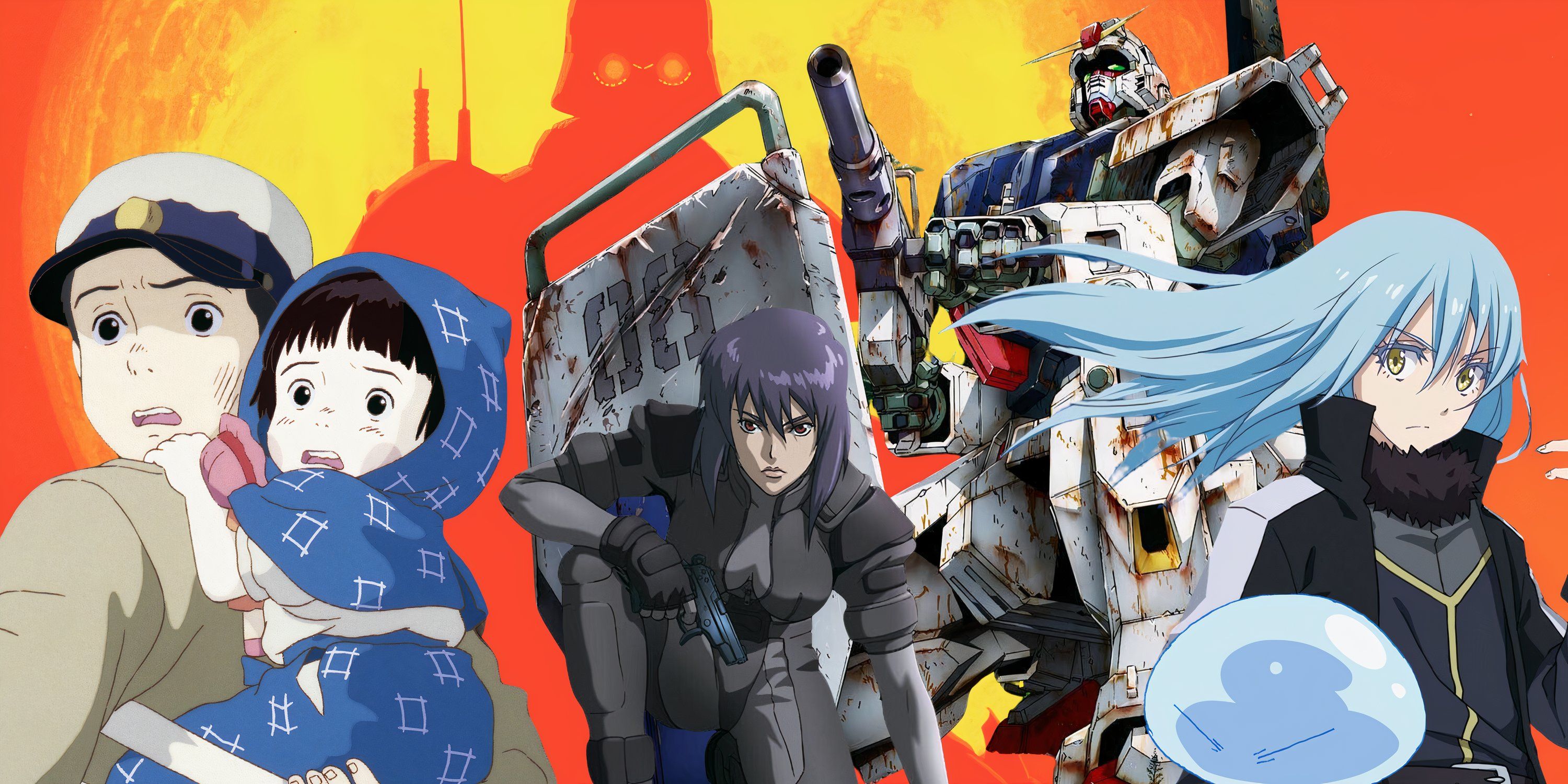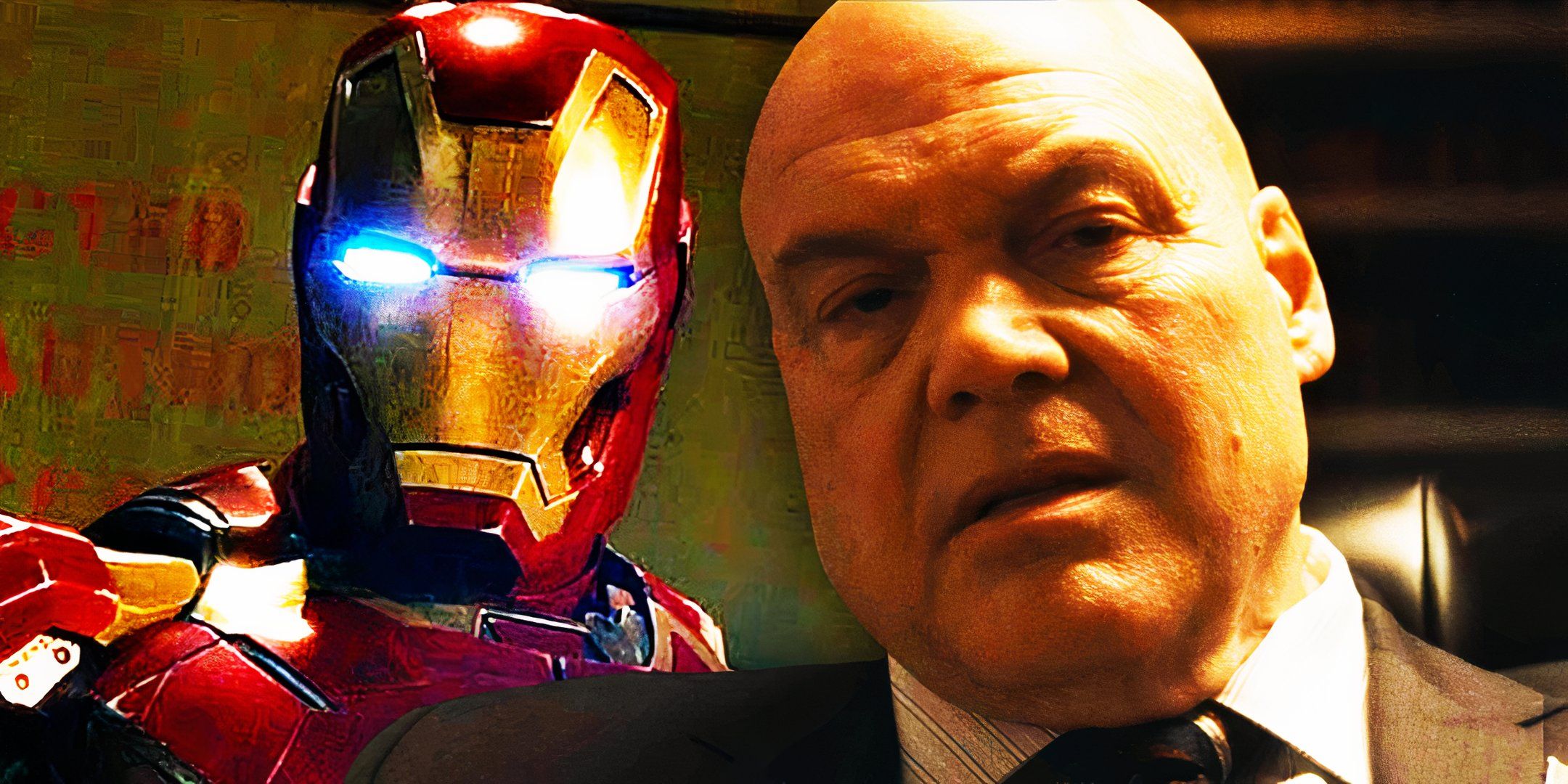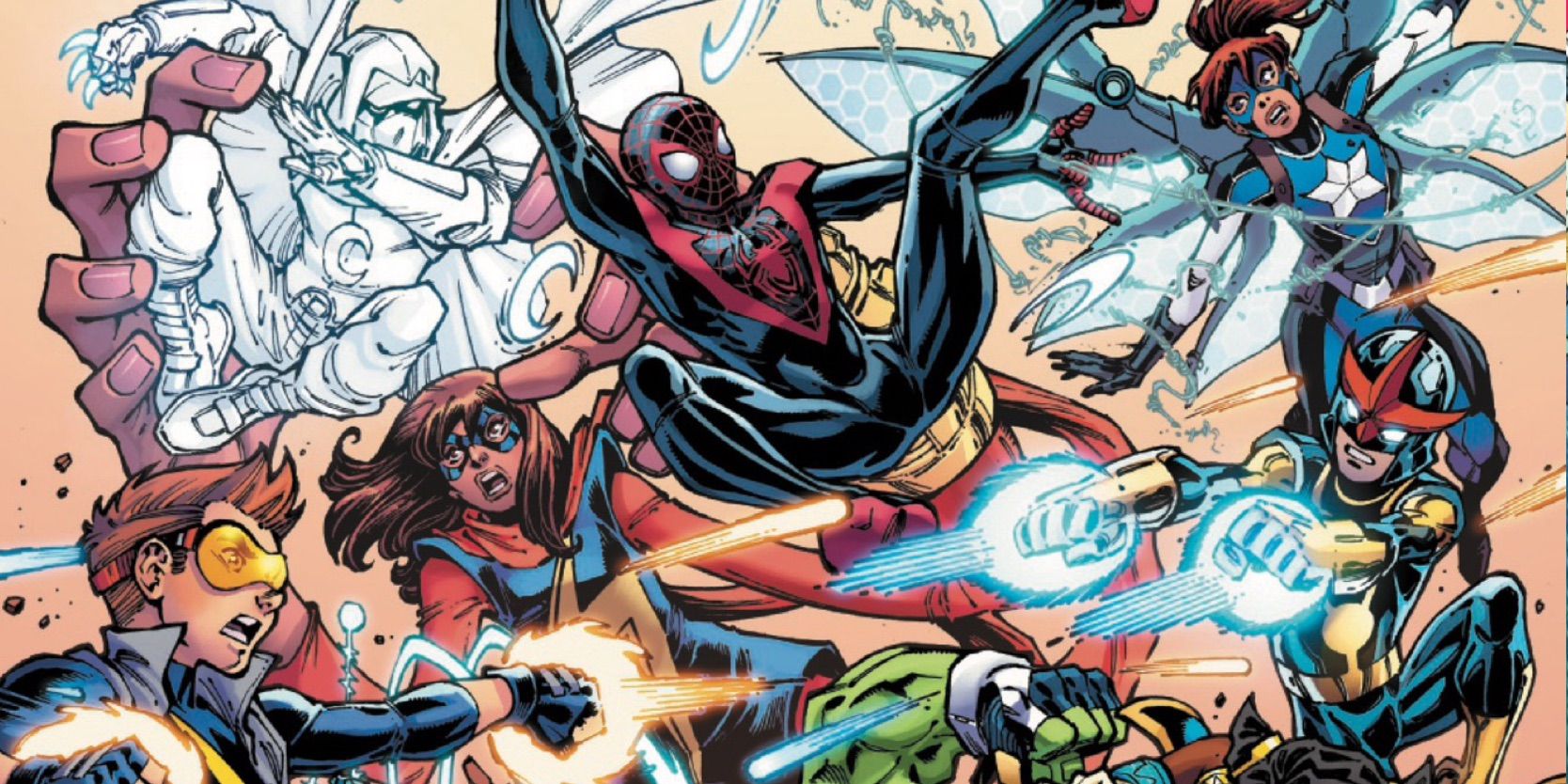10 Best Anime Political Thrillers
Summary Anime political thrillers explore themes of corruption, terrorism, organized crime, and war with suspenseful elements.
Shows like Psycho-Pass and Ghost in the Shell delve into complex moral quandaries surrounding technology and what it means to be human.
More grounded entries such as Grave of the Fireflies and Jin-Roh explore human suffering under failed political systems.
From feudal land disputes to conspiracies about virus-infected cyborg terrorists, politics drive the narrative of some of the most thrilling anime. International relations, elections, and human rights are inescapable topics in 2024, which is daunting and confusing. It's sometimes difficult to understand why politics matter, or how the voice of one person can bring about change in a world, but anime political thrillers illustrate the dangers of political apathy with some very bleak outcomes, and inspire activism in the most apolitical of people.
Political thrillers are a genre of fiction characterized by the inclusion of political power struggles, high stakes, and suspenseful elements. These stories often force the audience to consider multiple points of view, and challenge their own beliefs. Corruption, terrorism, organized crime, and war are common themes of political thrillers, whether in a familiar setting, or a fantastical world. Sometimes it's just easier to relate to the politics of electing a new Chairperson of the Hunter Society in Hunter X Hunter, than real world issues like gun control and civil rights.
Whether viewers turn to the anime political thrillers to escape the political discourse of the real world, or to witness the dangerous outcomes of remaining apolitical, the genre has something to please everyone.
Related 10 Best Anime With Political Intrigue Thanks to their complex settings and intricate stories, the best anime with political intrigue provide unique experiences that no fan should miss.
10 That Time I Got Reincarnated as a Slime
An Isekai About Inspirational Leadership
Close
That Time I Got Reincarnated as a Slime Streaming Service(s) Crunchyroll Writers Kazuyuki Fudeyasu Directors Yasuhito Kikuchi Creator(s) Yasuhito Kikuchi
That Time I Got Reincarnated as a Slime is a popular isekai in which a 37-year-old corporate employee dies, and awakens in a magical land with seemingly limitless power, albeit in the form of a featureless, gelatinous blob. Embracing his new identity as a Slime, Rimuru uses his ability to absorb powers, his charm, and personality to turn enemies into allies. His expanding empire, the Jura Tempest Federation, becomes home to powerful characters from diverse species like hobgoblins, wolves, orcs, and ogres, that wouldn't normally cohabitate.
The harmonious union of species, combined with the advantageous location of Rimuru's kingdom, draws the ire of neighboring political players like Dark Lords and Monarchs. This leads to some gorgeous fight scenes, which usually reveal the Slime has thought three steps ahead of his enemy. While Rimuru is powerful enough to rule by force, he doesn't because he's not a tyrant, and instead, inspires his followers and engages in diplomacy with his foes whenever possible.
9 Psycho-Pass
A High-tech Psychological Thriller
Psycho-Pass is a critically-acclaimed anime franchise set in a dystopian surveillance-state where biometric technology called Sibyl scans the mental state of every citizen and predetermines one's social status, job, and romantic partner. If someone's criminal intentions exceed a certain threshold, the person is labeled a Latent Criminal and exists in a lower societal class. The series follows a team of agents investigating would-be criminals, including a serial killer that Sibyl cannot accurately read, which reveals the flaws within the system.
With Sibyl virtually writing reality for society before it happens, the concept of free will all but disappears, which results in relative happiness for the majority of people, but alienates the criminal class. Certain characters within the series have a greater degree of free will than others, allowing the series to explore some very complex moral quandaries. Overall, Psycho-Pass is a fascinating rumination on individual liberty, and the limitations society places on it.
8 Attack on Titan
Epic Fantasy About Systemic Bigotry
Close
Attack On Titan Production Company Wit Studio, MAPPA
Attack on Titan, based on the manga by Hajime Isayama, starts off as a mystery about giant skinless humans attacking a civilization walled off from the rest of the world, but gradually unfolds into a tale of bigotry, political espionage, and eventually genocide. The root of the bigotry stems from a century-old grudge held by the formerly-subjugated Marleyans against their previous rulers, the Eldians, who abdicated the throne and secluded themselves in the walled-off city.
Eldians who remain outside that city are forced to live in ghettos, or turned into mindless Titans to be used as weapons against their own people. It's a fascinating and layered depiction of social decay caused by bigoted views handed down from one generation to the next. Though the series is a gritty military fantasy, it includes some questionable real-world allusions that require more cautious viewing to understand the ethical complexities presented.
7 Jin-Roh: The Wolf Brigade
A Love Story Set Against a Fascist Backdrop
Written by Mamoru Oshii, Jin-Roh: The Wolf Brigade, depicts a country pushed so far to the brink that totalitarianism and martial law seem normal and comforting to its inhabitants. The story takes place in an alternate history where Nazi Germany won World War II and occupied Japan, leading to a society ruled by an authoritarian right-wing government, and terrorized by leftist freedom fighters, the Sect. When Fuse, a Kerberos soldier, hesitates to eliminate a young Sect suicide bomber, he becomes embroiled in a conspiracy to overthrow his unit.
Fuse's journey is an emotional rollercoaster of plot twists and a tragic love story that leads him to choose between allegiance to his team's brutal methods of maintaining societal order, or following his heart and fighting back against fascism. It's a complex situation that doesn't have a clean resolution, but hopefully inspires the audience to question how they would react given the same circumstances. Living under a fascist regime is a terrifying prospect, but it's even scarier to willfully uphold that system of oppression, making the central conflict of Jin-Roh a challenging moral quandary.
6 High School Prodigies Have It Easy Even in Another World
Being the Change You Wish to See in the World
Riku Misora's High School Prodigies Have It Easy Even in Another World tells the story of seven gifted high school students who survive a plane crash only to find themselves transported to a medieval fantasy land called Freyjagard. The Seven Prodigies share their expertise to advance the local culture and modernize their technology. However, the rapid advancement of the lower class threatens the ruling class, leading to conflict.
High School Prodigies skips the bewilderment stage and goes straight to mastery. This allows the seven to make an immediate impact and repair the systems that only benefit the elite. The shared sense of justice the main characters possess is inspiring, and the impassioned speech about the importance of democracy in episode #4, "It Seems Tsukasa has Resolved to Change the World!" is one of the best distillations of the concept.
5 Gundam 08th MS Team
Undoing Nationalism and Choosing Peace
All Gundam series are political, but one series, Mobile Suit Gundam: The 08th MS Team, serves as a particularly bleak warning about the lasting horrors of warfare. While many Gundam series' conflicts revolve around space battles between Earth Federation and the space colony known as The Principality of Zeon, 08th MS Team is set in the Southeast Asian jungles. This setting grounds the story in a recognizable Earth setting, and sharpens the anti-war themes.
The 08th MS Team tells the story of a chance encounter between two soldiers from each side of the conflict, Shiro and Aina, and how their love story shatters their political viewpoints. As the plot unfolds, Shiro, the optimistic team leader, becomes disillusioned by the trauma of war and his sense of duty driving him to serve in the military fades away. In the end, he and Aina must contend with physical and emotional sacrifices in order to shed their identities as soldiers, and reclaim their humanity.
4 Akira
Absolute Power Corrupts Absolutely
Akira (1988) Director Katsuhiro Otomo
The 1988 film adaptation of Katsuhiro Otomo's Akira is one of the most recognizable anime in the world, and its themes of political corruption and loss of humanity are more relevant than ever. Thirty-one years after the sudden destruction of Tokyo triggered a World War, corrupt politicians oversee Neo-Tokyo which is overridden by anti-government protests, terrorism, and gang violence. When a chance encounter leads a young boy to acquire the destructive psychic powers that destroyed Tokyo, his friends take matters into their own hands to save him and prevent another disaster.
The most challenging scene of the film sees Colonel Shikishima wage a coup against the Executive Council which governs Neo-Tokyo. The council sends military police to arrest Shikishima so they can use him as a scapegoat for the current crisis, and without hesitation, the Colonel summons the courage to overthrow them and stand up for what's right. This pivotal choice doesn't avert the destruction of Neo-Tokyo, but it does prevent the Executive Council from spinning propaganda in the media and further misleading the public.
3 Hunter x Hunter
Finding Morality in a Dark World
Close
Hunter x Hunter (2011) Creator(s) Yoshihiro Togashi
Yoshihiro Togashi's Hunter X Hunter doesn't seem very political on the surface, but the politics of its fantastical world affect every plot point. Once the heroes gain their licenses, they're able to operate in an underworld that includes organized crime syndicates, assassins, serial killers, and a Black Market for purchasing illicit items. In their adventures as Hunters, Gon and Killua prove their diplomacy and strategic thinking are equal to their immense physical power.
The 61-episode "Chimera Ant Arc" balances the drama of the Ant-King's conniving royal family with the tortured relationships of the Hunters tasked with eradicating them, resulting in heartbreaking losses on both sides. Directly following the defeat of the Chimera Ants, the "13th Chairman Arc" unfolds a nefarious plot to take over the Hunter Society, proving that fellow humans are just as dangerous as the beasts they recently defeated.
2 Grave of the Fireflies
An Epitaph to the Victims of War
Close
Grave of the Fireflies is less of a thriller and more of a cautionary reminder about the cost of war and humanity's capacity for cruelty. Isao Takahata's 1988 masterpiece follows two Japanese orphans struggling to survive in the final weeks of the Pacific War. Firebombings destroy the children's home, and kill their mother, so their aunt takes them in. When resource scarcity and hunger turn everyone against one another, the aunt resents and abuses the children, forcing them to leave and fend for themselves.
Produced by Studio Ghibli, Fireflies is one of the saddest films in their canon, and doesn't let viewers off the hook with a happy ending. The movie is a tough, but necessary viewing experience. Much like modern technology and social media allow people to witness injustices happening worldwide, the film provides an unflinching look at humanity at its worst. While difficult to deal with the emotions this film evokes, it's an essential reminder that atrocities such as these still occur today and deserve attention, no matter how far away or removed from one's daily life.
1 Ghost in the Shell: Stand Alone Complex
The Complexity of Being Human
Set in an alternate universe from the 1995 cult film, Ghost in the Shell: Stand Alone Complex follows a counter-terrorism unit, Section Nine, as they tackle cyber-crimes and conspiracies in a society where cyborgs, and cybernetic enhancements are commonplace. Major Motoko Kusanagi leads the team while also struggling with her identity as a person whose consciousness inhabits a fully artificial body. SAC is far more cerebral and thought-provoking than any of the other Ghost in the Shell adaptations, but it amps up the action in equal measure.
The first season's villainous hacker, The Laughing Man, is idolized by perpetually-online young adults, despite causing widespread panic by destabilizing the government and financial institutions. The thrilling second season explores the ramifications of two world wars that unfolded before the series, as a refugee crisis develops, giving rise to a new terrorist group dubbed "The Individual Eleven". Stand Alone Complex's themes are especially relevant today, 21 years after its debut, as hysteria and cultural issues drive political discourse, and increasingly divisive rhetoric becomes normalized.











COMMENTS